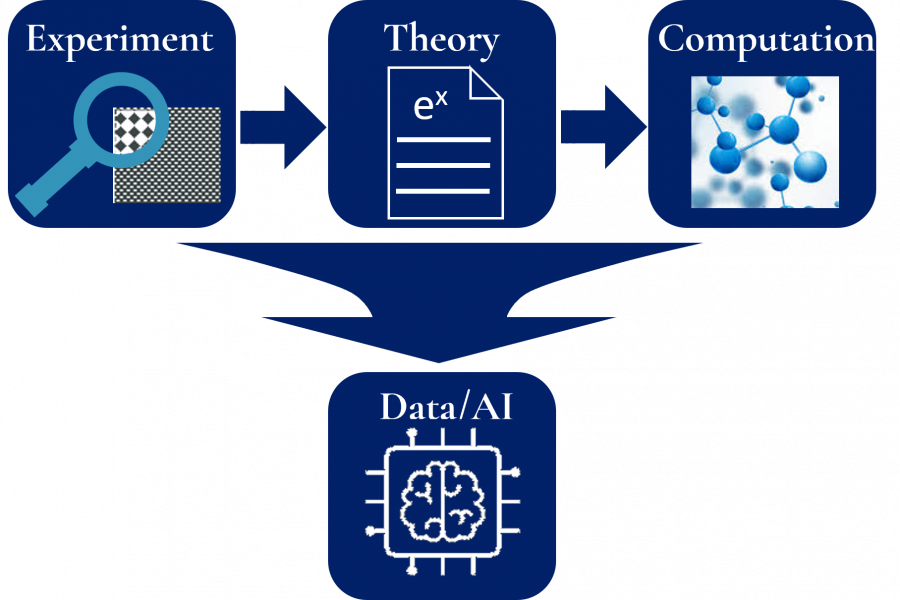
The AI for Understanding and Designing Materials (aiM) program at Duke University offers a comprehensive suite of opportunities for graduate students interested in the convergence of artificial intelligence and materials science. These include a graduate certificate, and a PhD/MS specialization, and Masters of Engineering.
NEW! Masters of Engineering AI + Materials
Duke’s Master of Engineering in AI + Materials specializes in AI-driven materials design, empowering you to imagine—and create—the technologies of tomorrow: from next-generation energy systems and resilient urban infrastructure to personalized healthcare solutions.
With 30 credits, you’ll merge advanced technical coursework with hands‑on, industry‑relevant experience, mastering artificial intelligence and machine learning techniques to tackle real‑world materials challenges.
Learn more about How to Apply For Masters
AI for Materials Graduate Certificate
The AI for Materials Graduate Certificate trains students to be proficient in both AI and materials science, equipping them to accelerate materials design for applications of societal impact. The program requires the completion of at least four courses in data and materials science, with a focus on computational methodologies in the field. Current Duke students, express your interest and course plan here.
Learn more about The Certificate
Mechanical Engineering and Materials Science AI + Materials PhD Specialization
PhD students participating in the aiM program develop expertise in AI and materials science through immersive training that bridges disciplines. The program is open to PhD students across the physical sciences, mathematics, computer science, materials science, and engineering. It offers an integrated curriculum compatible with students' home department guidelines, preparing them to address critical problems in materials design using AI.
These programs collectively aim to fill a critical gap in training the next-generation advanced manufacturing workforce, enabling the development of on-demand materials for vital societal applications across various sectors, including flexible electronics, biomedical implants, and infrastructure development.
Learn more about the AI Materials Phd specialization
aiM Fellowship
The aiM-NRT fellowship was available 2020-2026 and provided funding and integrated training for Duke PhD students interested in pursuing research at the intersection of data science and materials. Fellows engaged in an interdisciplinary curriculum, internships, and professional skills workshops.